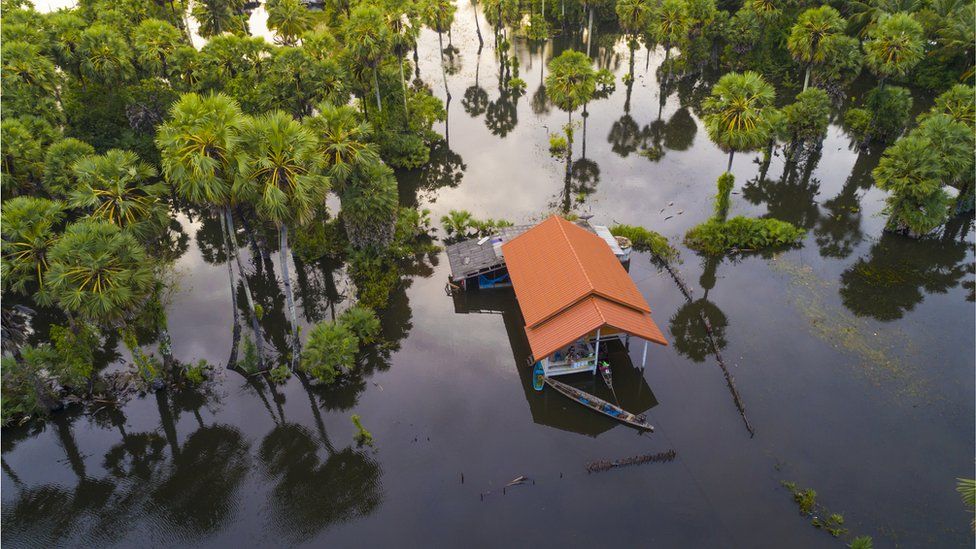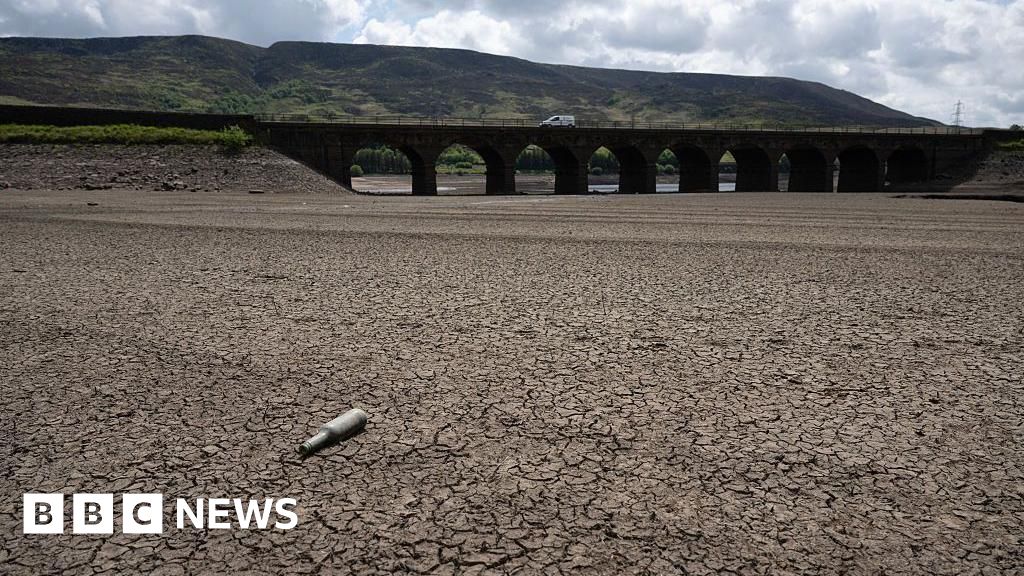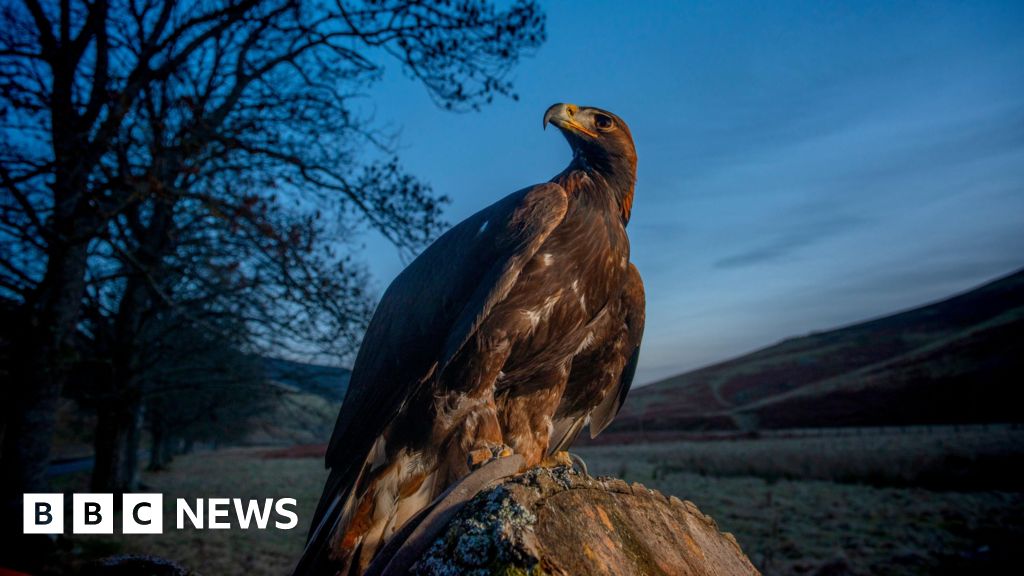ARTICLE AD BOX
 Image source, Getty Images
Image source, Getty Images
Floods across the Asia Pacific's low-lying regions are becoming more common
By Suranjana Tewari
BBC News, Singapore
In a village in Western India, women collect onions that have been stored in the orange metal dryers that are transforming their lives.
It is simple, almost rudimentary, technology. But they help the farmers to process excess or lower quality crop - which would ordinarily go to waste - into valuable products that can increase their profit.
The dryers have been deployed around 400 villages and are made by India's S4S Technologies, one of five organisations that won the Earthshot Prize this week. The £1m ($1.2m) award was started by Britain's Prince William in 2014 with the aim of finding and scaling up innovative solutions to the world's greatest environmental challenges.
"S4S, along with women farmers, are creating a new food ecosystem that reduces wastage and mitigates the increase in greenhouse gas emissions while meeting the world's food needs," co-founder of S4S Technologies Nidhi Pant said in a statement after the award ceremony in Singapore.
Indian farmers are contending with the impact of climate change every day, and they are not alone. The United Nations Intergovernmental Panel on Climate Change has identified the Asia-Pacific as the region most vulnerable to climate change, with 13 out of 30 countries on the continent facing significant fallout.
Home to multiple low-lying coastal cities which are exposed to flood and typhoon risk, the region also faces dramatic increases in heat and humidity; extreme rainfall is forecast in some areas, while drought is anticipated in others.
But Asia is also home to a great deal of innovation, actress Cate Blanchett said on the "green" carpet ahead of the Earthshot Prize ceremony. "There are so many people out there of all age groups and demographics, from all cultures, actually doing things within their own communities, in their own regions to tackle issues caused by the very rapidly changing climate,"
Turbocharging solutions
The founders of Hong Kong-based GRST, which won in the "Clean Our Air" category, are anticipating the transition to electric vehicles around the world with their eco-friendly lithium ion battery technology. They plan to use the prize to scale up their operations - GRST produces its batteries in China where it also sells them but plans to expand to Canada, Europe and Singapore.
"During the battery production, there's a lot of emissions and toxic chemicals that go into the conventional way of doing it. We've replaced those with water and water-soluble materials, so [it's] very clean and much lower energy usage. But the important point is at the end of life, our batteries are [more] easily recycled than water so we can minimise the need for future mining," they said at the award ceremony.
Image source, Getty Images
Image caption,Prince William poses with the winners during the 2023 Earthshot Prize Awards Ceremony in Singapore.
Meaghan Brosnan was in the US Coast Guard for 20 years before joining WildAid, which won in the "Revive our Oceans" category.
WildAid is working with communities and governments around the world - including in China, the Philippines and Palau - to combat illegal fishing and protect ecosystems in marine protected areas. "We're also working with some local communities to modify their fishing nets, so that they will not capture and drown sea turtles," Ms Brosnan said.
Aadith Moorthy, from the Indian state of Karnataka, is the founder of Boomitra, another Earthshot Prize winner. Mr Moorthy works with farmers to improve their agricultural practices by checking soil health and maximising crop diversity.
He was passing through an Indian village in 2017 when he came across the funeral procession for a farmer who had taken his own life because of crop failure. This tragic moment eventually inspired Boomitra, which means "friend of the earth".
Noting that Boomitra currently works with about 150,000 farmers and on some five million acres of land around the world, he stressed that "two more zeros" need to be added to these statistics in order to move the needle on climate change.
Solutions hub
The energy for innovation and solving the planet's problems was palpable amongst participants and trustees on the green carpet.
"What we all need in the climate space is both action and hope. And the finalists that we see, they provide both," former New Zealand Prime Minister and Earthshot trustee Jacinda Ardern said ahead of the ceremony.
Image source, Getty Images
Image caption,The Earthshot Prize has a number of high profile trustees
Christina Figueres - who headed UN climate negotiations for six years and played a key role in the talks that led to the Paris Climate Agreement - told the BBC that she wanted to take Earthshot to Asia because the region "leads the world into the future".
Noting the rate of growth in the region, as well as the demand for energy both in population as well as in industrial productivity, Ms Figueres praised the "brilliant, disruptive efforts" of people and organisations in the Asia-Pacific to address environmental challenges in a timely fashion.
Prince William also expressed hopes that the Earthshot Prize would expand into a global movement, in which governments are more engaged in green sectors so that climate change would be easier to tackle.
"Our winners and all our finalists remind us that, no matter where you are on our planet, the spirit of ingenuity, and the ability to inspire change, surrounds us all," he said.
Additional reporting by Daniela Relph and Nikhil Inamdar.

 1 year ago
47
1 year ago
47








 English (US) ·
English (US) ·